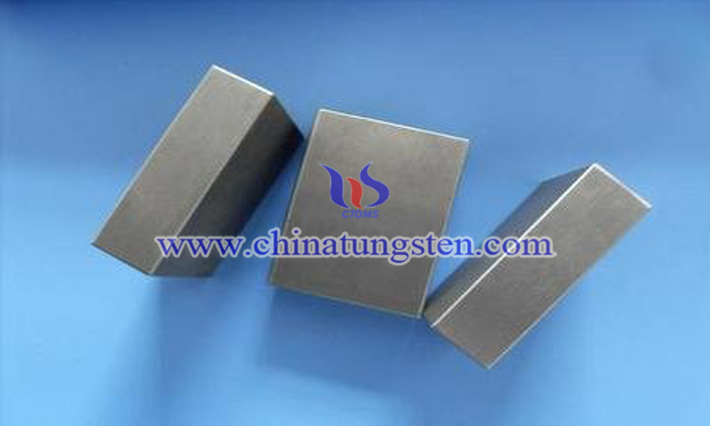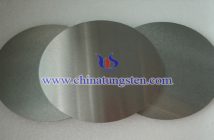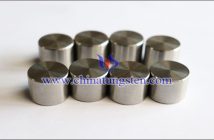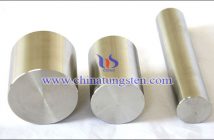Ⅰ What is Tungsten Alloy?
There are two definitions of tungsten alloy: (1) tungsten alloy in a broad sense: metal materials containing tungsten are collectively called tungsten alloy, such as tungsten-iron alloy, tungsten-copper alloy, tungsten-nickel alloy and cemented carbide; (2) Tungsten alloy in a narrow sense: an alloy material composed of tungsten as a matrix material and a small amount of metal binders such as nickel, copper, iron, cobalt, molybdenum and chromium, also known as high specific gravity tungsten alloy or high density tungsten alloy or heavy alloy.

Ⅱ Classification
Mo W Alloy
The alloy containing molybdenum and tungsten includes molybdenum-based molybdenum-tungsten alloy and tungsten-molybdenum alloy series based on tungsten. The alloy can be formed in any proportion and is a complete solid solution alloy at all temperatures.
Niobium Tungsten Alloys
A niobium alloy formed by adding a certain amount of tungsten and other elements based on niobium. Tungsten and niobium form infinite solid solution. Tungsten is an effective strengthening element of niobium, but with the increase of tungsten content, the plasticity-ductile-brittle transition temperature of the alloy will increase and the grain size will grow significantly. Therefore, in order to obtain high strength Nb-W alloy, it is necessary to properly control the addition amount of tungsten, and at the same time, it is necessary to add some elements such as zirconium and hafnium that refine grain and reduce plasticity-ductile-brittle transition temperature.
Cemented Carbide
Cemented Carbide is the most common and main form of tungsten alloy. Different from the previous tungsten alloys, it is tungsten, carbon and cobalt, so it is often called tungsten-cobalt alloy. At present, the most widely used tools in the industrial field are basically cemented carbide tools, so cemented carbide, a tungsten alloy, is also called "industrial teeth".
Ⅲ Performance
1.High density: the density of high-density tungsten alloy is generally 16.5~19.0g/cm3, which is equivalent to more than twice the density of steel;
2.High tensile strength: the tensile strength of sintered W-Ni- Fe high-density alloy is 800~1000MPa, and its strength can be increased to 1300~1500 MPa; after heat treatment and deformation processing;
3.Good ductility: W-Ni-Fe high-density alloy has good ductility, and its elongation in sintered state can reach 10%~15%. After vacuum or atmosphere dehydrogenation treatment, the elongation can be increased to 20% ~ 30%;
4.Good radiation absorption ability: the radiation absorption ability of high-density alloy is 30%~40% higher than that of lead, and its stability is also better than that of lead;
5. Good electrical conductivity: W-Ni-Cu and W-Ni-Fe high-density alloys have good electrical conductivity, corrosion resistance and high voltage resistance;
6.Excellent thermal conductivity and low linear expansion coefficient: its thermal conductivity is 5 times that of die steel, and its linear expansion coefficient is only 1/2 ~ 1/3 that of iron or steel;
7.Corrosion resistance and oxidation resistance;
8.Solder ability: High-density alloys can be brazed with copper and silver solder and electroplated;
9.Machining characteristics: Because W-Ni-Fe high-density alloy has excellent ductility, it can be machined such as turning, milling, planning, turning threads and tapping, and can also be subjected to large deformation strengthening treatment such as rolling, swaging and forging;

IV Application
Tungsten alloy is widely used in many fields because of its above properties, such as: in sports, it can be used as a counterweight for golf clubs, fishing pendants, darts, boats and racing cars; In medical treatment, it can be used as radiation shield, collimator, isotope container and radiation-proof test tube, etc In terms of electronic information, it can be made into tungsten alloy electronic packaging pieces, tungsten alloy mobile phone vibrators, etc In petrochemical industry, it can be used as drill pipe for oil drilling and coal mining; On the military side, it can be used as a small arrow in a bullet, a "gunpowder cover" in a shaped charge, a shotgun, a submunition, etc.; In aerospace, it can be used as rotor material of gyroscope, inertia rotating element of airplane, balance weight element of various instruments and engine.



